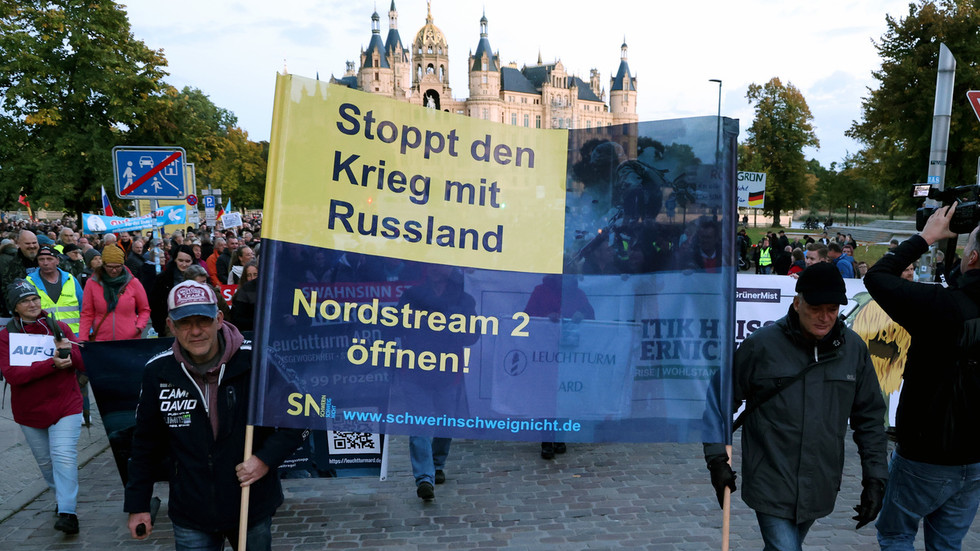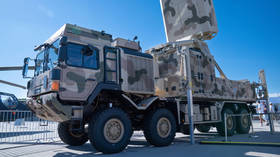
This policy has resulted in negative impact on both the economy and the general population, the Russian president believes

A demonstration against the energy policy starts in front of Schwerin Castle, a banner reads ‘Stop the war with Russia. Open Nordstream 2!’. © Bernd Wüstneck / picture alliance via Getty Images
Berlin made a mistake by placing its obligations to NATO above the interests of the German people, Russian President Vladimir Putin has said. Now business, the country’s economy and its citizens are paying for this mistake, he told journalists on Friday.
“Apparently, some kind of allied obligations have been placed to the forefront” by Germany “within the framework of the North Atlantic Treaty Alliance,” Putin said at a press conference after the Central Asia-Russia summit in Astana, Kazakhstan.
“Is it right or wrong? I believe that it’s a mistake, and business, the economy, and the citizens of the Federal Republic [of Germany] are paying for this mistake, because it has negative economic consequences for the eurozone in general and for the Federal Republic in particular,” Putin pointed out.
He was answering a question about Berlin’s role in the Ukraine conflict, where it has been among key backers of Kiev.
According to the Russian leader, German authorities “should decide for themselves what is more important: the fulfilment of some allied obligations as they see them, or ensuring the interests of their own people, their national interests.”
Earlier this week, Ukraine’s Defense Minister Alexey Reznikov announced that Kiev received the first unit of the German cutting-edge IRIS-T air defense system. His German counterpart Christine Lambrecht called the shipment an important contribution to the Eastern European nation’s ability to defend itself from “missile shelling.”

That’s while the German military has so far not received a single unit of the ground-based IRIS-T system variant, which led to concerns being voiced by some politicians and media outlets, who believe that the country is depleting its own weapons stockpile by sending the arms to Kiev.
German Chancellor Olaf Scholz said earlier that Berlin will keep up its support for Ukraine “for as long as it takes.”
After Russia launched its military operation in Ukraine in late February, many Western states imposed unprecedented sanctions against the country. This has led to a significant drop in Russian natural gas shipments to Western Europe, including Germany, and resulted in soaring energy prices and accelerating inflation.
Berlin has introduced a series of measures meant to reduce winter energy consumption. Meanwhile, prices for firewood and wood pellets rose by over 85% in August compared to the same month last year, according to a recent report by Destatis, the Federal Statistics Office.




